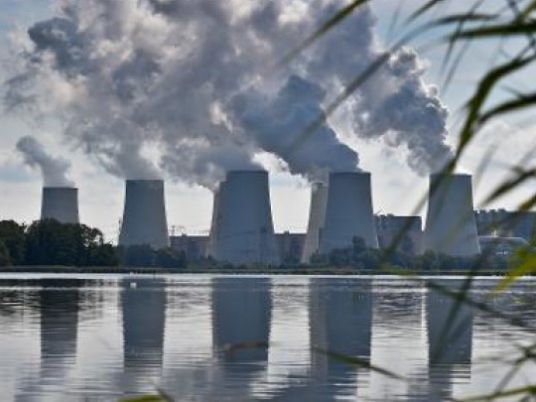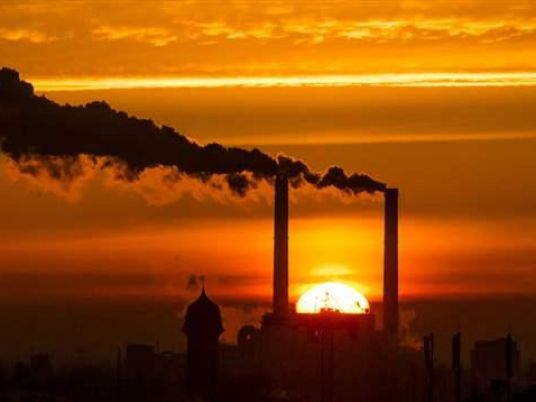
At the tail end of the hottest year on record, climate negotiators in Paris will aim on Saturday to seal a landmark accord that will transform the world's fossil fuel-driven economy within decades and turn the tide on global warming.
After four years of fraught UN talks often pitting the interests of rich nations against poor, imperilled island states against rising economic powerhouses, French Foreign Minister Laurent Fabius will present the latest text of a climate deal on Saturday at 11:30 am (1030 GMT).
Fabius hopes to secure a sweeping agreement to curb rising greenhouse gas emissions within hours. If that fails, the talks could run into Sunday.
A source in the French government confirmed that negotiators came up with a new draft, and that it was being translated into the United Nations' six official languages before ministers gather to consider it for adoption.
"I think we're done here," Marshall Islands Foreign Minister Tony De Brum told Reuters, expressing hopes for a deal. He said negotiators had been up until 4:00 am working on the accord.
Officials from 195 nations have been seeking to resolve the final sticking points, none seemingly insurmountable: the phrasing of a goal for phasing out carbon emissions later this century; the frequency of further negotiations meant to encourage even faster action.
"All the conditions are in place to have a universal, ambitious final deal," Fabius told reporters late on Friday, urging a drive to resolve what are still deep disagreements on issues such as finance for developing nations.
"There has never been such a strong momentum."
The result, including pledges to expand billions of dollars in funding to ease the shift to low-carbon fuels and to help developing nations cope with impacts of climate change ranging from floods to heat waves, is likely to be hailed by many for its ambition, while vilified by others for its lack thereof.
If successful, it will be a powerful symbol to world citizens and a signal to investors – for the first time in more than two decades, the world will have a common vision for cutting back on the greenhouse gas emissions blamed for overheating the planet, and a roadmap for ending two centuries of fossil fuel dominance.
By charting a common course, they hope executives and investors will be more willing to spend trillions of dollars to replace coal-fired power with solar panels and windmills.
"It will be up to business, consumers, citizens and particularly investors to finish the job," said Hans Joachim Schellnhuber, director of the Potsdam Institute for Climate Impact Research.
Yet unlike the Kyoto Protocol, the last major climate deal agreed in 1997, the Paris pact will not be a legally binding treaty, something that would almost certainly fail to pass the US Congress. Instead, it will be largely up to each nation to pursue greener growth in its own way, making good on detailed pledges submitted ahead of the two-week summit.
And in the United States, many Republicans will see the pact as a dangerous endeavour that threatens to trade economic prosperity for an uncertain if greener future.
A deal in Paris would mark a legacy-defining achievement for US President Barack Obama, who has warned not to “condemn our children to a planet beyond their capacity to repair”, and puts to rest the previous climate summit in Copenhagen six years ago, when attempts to agree even deeper carbon curbs failed.
A late break
Leaders of vulnerable low-lying nations – who brought together more than 100 nations in a "high ambition coalition" at the talks, striving for the strongest possible language – have portrayed the Paris talks as the last chance to avoid the catastrophic consequences of rising temperatures.
Without joining together for immediate action, they had warned, greenhouse gas emissions would be certain to push the planet’s ecosystem beyond what scientists view as a tipping point: 2 degrees Celsius (3.6 Fahrenheit) above pre-industrial temperatures. It is already 1 degree C higher.
A previous draft seeks to restrain the rise to "well below 2C", a more ambitious goal than past efforts stopping at 2C, but one that faced opposition from some oil-exporting nations.
While scientists say national pledges thus far are still too little to prevent that happening, the agreement should set out a roadmap for steadily increasing or "ratcheting up" those measures in order to head off calamity. How often to do so was one of the few remaining points of dissention.
President Xi Jinping has promised that carbon dioxide emissions from China's rapidly developing economy will start falling from around 2030, and does not want to revisit the target. Delegates said China had also reasserted demands that developed nations do far more to curb greenhouse gas emissions, mostly the result of burning coal, gas and oil.
A final deal is expected to provide developing nations greater financial security as they wean themselves away from coal-fired power, and also suffer the financial consequences of a warming climate on the earth's flora and fauna.
Rich nations are likely to increase and extend an earlier pledge to provide $100 billion a year in funding by 2020, one of the principal sticking points.
The strength of that commitment was still being crafted late on Friday, with some of the negotiators showing the effects of a two-week-long diplomatic marathon.
"There will be a new draft text tomorrow and hopefully a final agreement. I hope so because I want to go back home," Izabella Teixeira, Brazil's minister of environment, said on Friday. "I love France but I miss Brazil too much."


